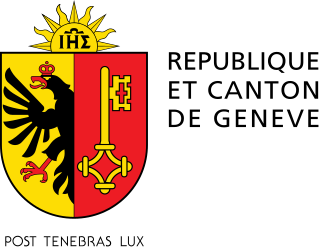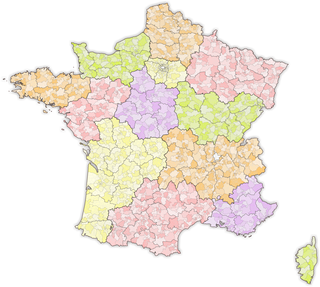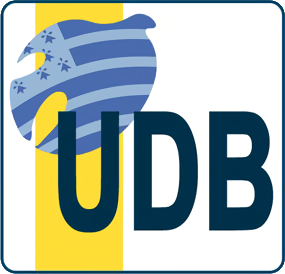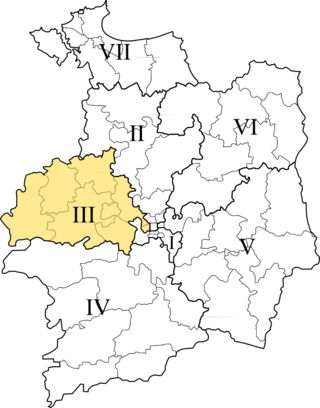| ||
| Turnout | 96.3% | |
|---|---|---|
Cantonal elections to renew the general councillors of cantons were held in France on 20 and 27 April 1958.
| ||
| Turnout | 96.3% | |
|---|---|---|
Cantonal elections to renew the general councillors of cantons were held in France on 20 and 27 April 1958.
In the context of a governmental crisis linked to the Algerian War, these elections highlighted the continued decline of the French Communist Party since the Hungarian uprising of 1956. Both the Radicals, following the failure of Mendésism, and the Gaullists lost voter support. [1] The victory primarily went to the Popular Republican Movement (MRP). [2]
| Party | Votes | % | Seats | |
|---|---|---|---|---|
| Moderates and Independents | 1,802,691 | 24.79 | 522 | |
| Rally of Republican Lefts | 1,172,968 | 16.13 | 387 | |
| French Section of the Workers' International | 1,355,705 | 18.64 | 267 | |
| Popular Republican Movement | 813,699 | 11.19 | 147 | |
| Miscellaneous left | 214,637 | 2.95 | 74 | |
| Social Republicans | 272,534 | 3.75 | 60 | |
| French Communist Party | 1,316,701 | 18.11 | 50 | |
| Far-left | 84,512 | 1.16 | 7 | |
| Miscellaneous | 40,725 | 0.56 | 6 | |
| Union et fraternité française | 168,636 | 2.32 | 3 | |
| Far-right | 29,138 | 0.40 | 3 | |
| Total | 7,271,946 | 100.00 | 1,526 | |
| Valid votes | 7,271,946 | 69.73 | ||
| Invalid/blank votes | 3,157,445 | 30.27 | ||
| Total votes | 10,429,391 | 100.00 | ||
| Registered voters/turnout | 10,830,431 | 96.30 | ||
| Source: Le Monde [3] | ||||

In the administrative divisions of France, the department is one of the three levels of government under the national level, between the administrative regions and the communes. Ninety-six departments are in metropolitan France, with an additional five constituting overseas departments, which are also classified as overseas regions. Departments are further subdivided into 333 arrondissements and 2,054 cantons. These last two levels of government have no political autonomy, instead serving as the administrative basis for the local organisation of police, fire departments as well as, in certain cases, elections.

The Fifth Republic is France's current republican system of government. It was established on 4 October 1958 by Charles de Gaulle under the Constitution of the Fifth Republic.

French West Africa was a federation of eight French colonial territories in West Africa: Mauritania, Senegal, French Sudan, French Guinea, Ivory Coast, Upper Volta, Dahomey and Niger. The federation existed from 1895 until 1958. Its capital was Saint-Louis in Senegal until 1902, and then Dakar until the federation's collapse in 1960.

The Canton of Geneva, officially the Republic and Canton of Geneva, is one of the 26 cantons of the Swiss Confederation. It is composed of forty-five municipalities, and the seat of the government and parliament is in the city of Geneva.

The current Constitution of France was adopted on 4 October 1958. It is typically called the Constitution of the Fifth Republic(French: la Constitution de la Cinquième République), and it replaced the Constitution of the Fourth Republic of 1946 with the exception of the preamble per a 1971 decision of the Constitutional Council. The current Constitution regards the separation of church and state, democracy, social welfare, and indivisibility as core principles of the French state.

The Christian Democratic People's Party of Switzerland, also called the Christian Democratic Party, Democratic People's Party and Swiss Christian Democratic Party, was a Christian democratic political party in Switzerland. On 1 January 2021, it merged with the Conservative Democratic Party of Switzerland (BDP/PBD) to form The Centre, which now operates at the federal level. The Christian Democratic People's Party will continue to exist at the cantonal level as individual local and regional parties determine their status. Its 28 seats in the National Council and 13 seats in the Council of States were transferred to the new party, as was its sole seat on the Federal Council, held by Viola Amherd.

The Rally of the French People was a French political party, led by Charles de Gaulle.

The cantons of France are territorial subdivisions of the French Republic's departments and arrondissements.
A canton is a type of administrative division of a country. In general, cantons are relatively small in terms of area and population when compared with other administrative divisions such as counties, departments, or provinces. Internationally, the most politically important cantons are the Swiss cantons. As the constituents of the Swiss Confederation, theoretically and historically, they are semi-sovereign states.

Y is a commune in the Somme department in Hauts-de-France in northern France.

Lagnieu is a commune in the Ain department in eastern France.

Breton Democratic Union is a Breton nationalist, autonomist, and regionalist political party in Brittany and Loire-Atlantique. The UDB advocates devolution for Brittany as well as the promotion of its regional languages and its associated culture.

Badefols-sur-Dordogne is a commune in the Dordogne department in southwestern France. The commune is situated on the river Dordogne.
Bernard Cornut-Gentille was a French administrator and politician.

The 3rd constituency of Ille-et-Vilaine is a French legislative constituency in the Ille-et-Vilaine département. Like the other 576 French constituencies, it elects one MP using the two-round system, with a run-off if no candidate receives over 50% of the vote in the first round.

The 13th constituency of the Pas-de-Calais was a former French legislative constituency which existed until 2012. It was one of 14 French legislative constituencies in the Pas-de-Calais department (62) located in the Nord-Pas-de-Calais region.
This local electoral calendar for the year 2010 lists the subnational elections held in 2010 in the de jure and de facto sovereign states. By-elections and sub-national referendums are also included.

The Canton of Céret is a French former canton of Pyrénées-Orientales department, in Languedoc-Roussillon. It had 22,167 inhabitants (2012). It was disbanded following the French canton reorganisation which came into effect in March 2015.

The president of France is elected by direct popular vote to a five-year term. If the office falls vacant before the end of five years, an election to a new five-year term is held, generally within 20 to 35 days of the vacancy.
Anarchism in Switzerland appeared, as a political current, within the Jura Federation of the International Workingmen's Association (IWA), under the influence of Mikhail Bakunin and Swiss libertarian activists such as James Guillaume and Adhémar Schwitzguébel. Swiss anarchism subsequently evolved alongside the nascent social democratic movement and participated in the local opposition to fascism during the interwar period. The contemporary Swiss anarchist movement then grew into a number of militant groups, libertarian socialist organizations and squats.